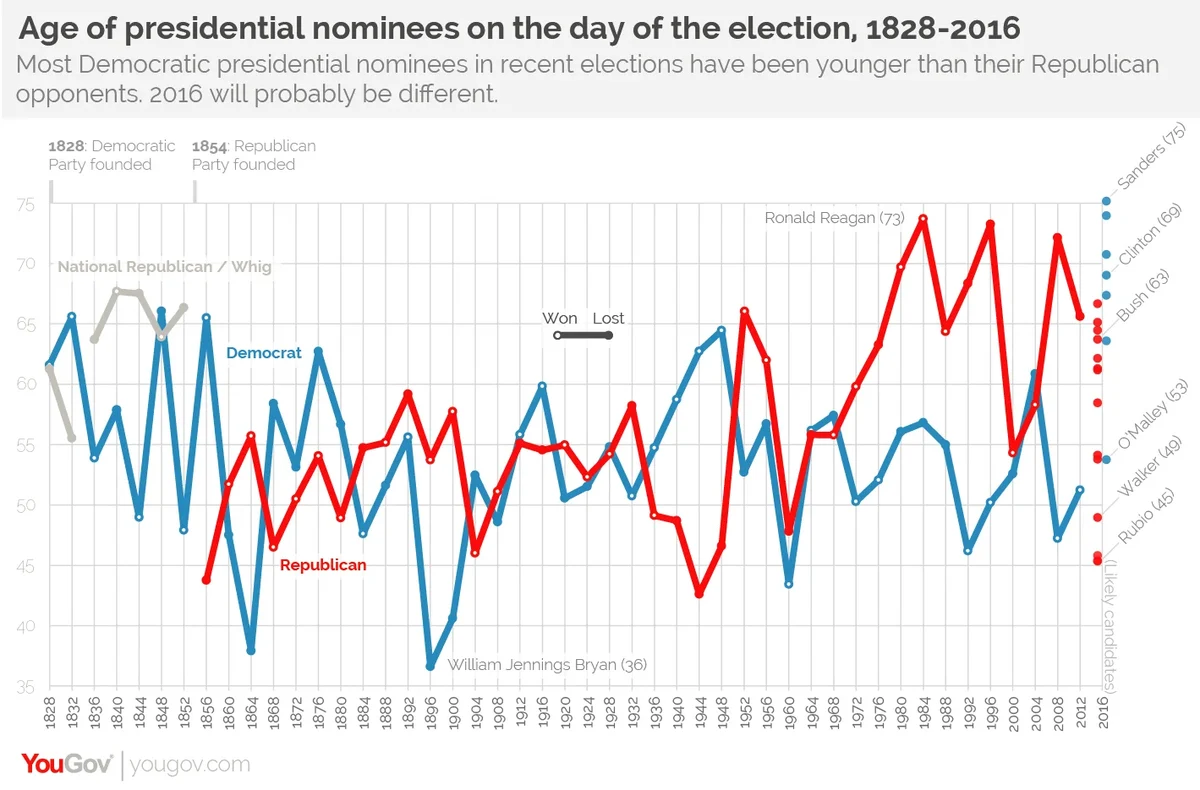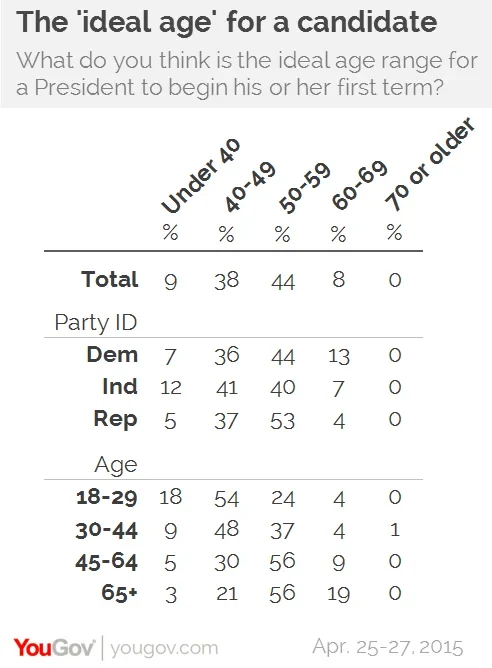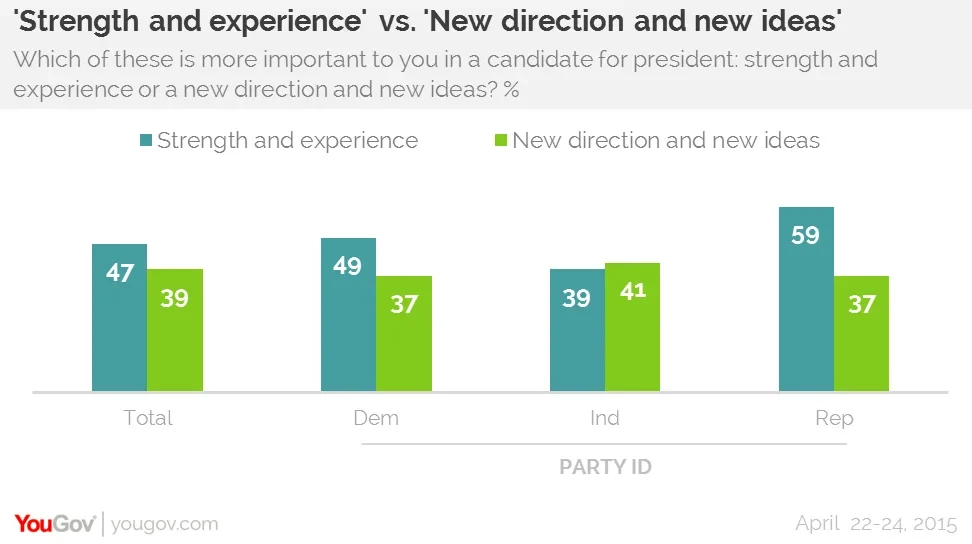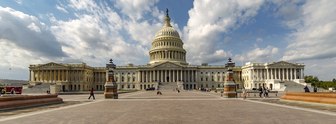Americans say the ideal would be between ages 40 and 59, but in practice other factors may be more important
Bernie Sanders announced last week that he would be running for the Democratic presidential nomination in 2016. Sen. Sanders of Vermont is not technically a Democrat – he runs as an independent and has called himself a socialist – but his candidacy is also significant for his age: Sanders will be 75 by November 2016, and, if he won, would be the oldest nominee US presidential history.

Of course, Sen. Sanders's polling numbers make his chances look extremely remote. But the outright Democratic frontrunner, Hillary Clinton, would also be historic: at 69, she would be the oldest nominee in the Democratic Party's 188-year history.
YouGov’s latest polling finds that, when asked directly, the vast majority of Americans would set the “ideal” age range for a new president much lower than Clinton’s or Sanders’s age. In fact, less than 1% of Americans say the “ideal” is 70 years old or higher, and 92% put the ideal range below 60. A candidate can also be too young – only 9% want a president under 40 – and most want him or her to be 40-49 (38%) or 50-59 (44%).

There is relatively little difference between Democratic and Republican identifiers on this issue: both are most likely to pick the 50-59 range. Democrats are more likely to pick 60-69 – possiby an acknowledgement of Clinton – but 87% nevertheless say the ideal age is under 60. There is a much more dramatic difference between the views of younger and older Americans, who each prefer a candidate closer to their own age.
However, asked another way, Americans seem less interested in choosing a fresh, young face over an old hand. 47% say “strength and experience” is more important for a presidential candidate than “new direction and new ideas”, which is preferred by 39%. And while in 2007 a poll found Democrats craving a "new direction", today they say experience is more important.

That Democratic doubts about Clinton's age are minimal is supported by another recent poll that found three-quarters say would be satisfied with Clinton as the only candidate for the Democratic nomination. Meanwhile, on the GOP side the two frontrunners in YouGov’s latest poll on the 2016 nomination, Scott Walker and Marco Rubio, are both under 50, despite 59% of Republicans emphasizing "strength and experience".
Republicans have tended to pick older candidates in recent elections (at 45, Rubio would be the youngest GOP nominee since 1944), and Democrats have tended to pick younger ones. But this has not always been the case, and the age of candidates changes unpredictably from election to election.
Ronald Reagan is one example of why the candidate's age may matter much less than the way the candidate frames the issue. In 1984 the 73-year old effectively neutralized it during the second debate with 56-year old Michael Dukakis.
"I want you to know that also I will not make age an issue of this campaign," said Reagan. "I am not going to exploit, for political purposes, my opponent's youth and inexperience."
PA image
Full poll results can be found here and topline results and margin of error here.
This article has been edited.









